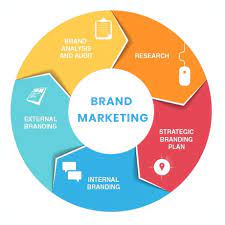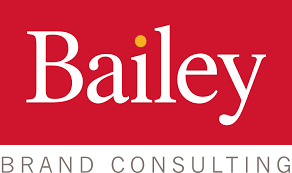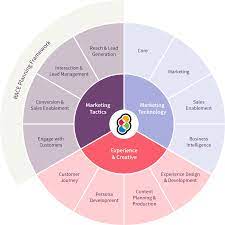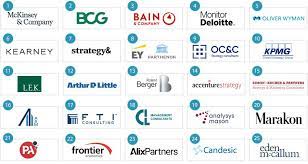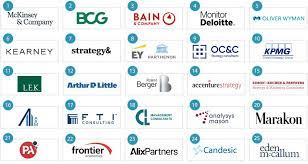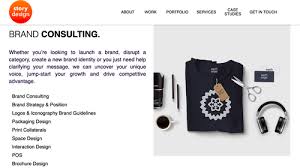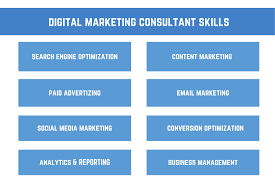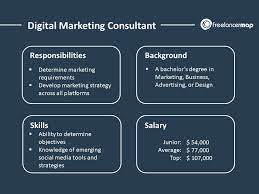Title: The Power of Brand Consulting Agencies in Building Stronger Brands
Introduction:
In today’s highly competitive business landscape, building a strong brand has become more crucial than ever. A brand is not just a logo or a tagline; it represents the essence of a company and how it is perceived by its target audience. This is where brand consulting agencies play a pivotal role. These specialized agencies bring expertise, creativity, and strategic thinking to help businesses establish and enhance their brand identity. In this article, we will explore the key benefits of working with a brand consulting agency.
Strategic Brand Development:
Brand consulting agencies excel in developing comprehensive brand strategies that align with a company’s vision, values, and goals. They conduct in-depth market research and analysis to understand the target audience, competition, and industry trends. By leveraging this knowledge, they create unique positioning strategies that differentiate the brand from its competitors. These agencies help businesses define their brand voice, messaging, visual identity, and overall brand experience.
Brand Identity Design:
A strong visual identity is crucial for creating a memorable brand. Brand consulting agencies have talented designers who craft visually appealing logos, typography choices, color palettes, and other design elements that reflect the essence of the brand. They ensure consistency across all touchpoints to create a cohesive and impactful visual identity.
Brand Messaging and Communication:
Effective communication is at the heart of building a successful brand. Brand consulting agencies work closely with businesses to develop compelling messaging that resonates with their target audience. They create clear and consistent messaging frameworks that can be used across various marketing channels such as websites, social media platforms, advertising campaigns, and more.
Market Positioning and Differentiation:
In today’s crowded marketplace, standing out from the competition is essential for success. Brand consulting agencies help businesses identify their unique value proposition and develop strategies to position themselves effectively in the market. They analyze competitors’ strengths and weaknesses, identify gaps in the market, and leverage these insights to create a distinctive brand positioning that captures the attention of consumers.
Brand Guidelines and Governance:
Maintaining consistency in brand representation is crucial for building trust and recognition. Brand consulting agencies develop comprehensive brand guidelines that outline how the brand should be portrayed across various channels. These guidelines ensure that all marketing materials, both online and offline, adhere to the brand’s visual identity, tone of voice, and messaging.
Conclusion:
In today’s competitive business environment, partnering with a brand consulting agency can be a game-changer for businesses seeking to build a strong and memorable brand. These agencies bring expertise in strategic planning, design, messaging, market positioning, and governance to help businesses create a compelling and differentiated brand identity. By investing in professional brand consulting services, companies can establish a solid foundation for growth, enhance their reputation among consumers, and achieve long-term success in their respective markets.
The Advantages of Engaging a Brand Consulting Agency: Unlocking Growth and Success
- Increased brand awareness and recognition.
- Improved customer loyalty and engagement.
- More effective marketing strategies and campaigns.
- Enhanced product or service positioning in the market place.
- Improved customer experience with the brand’s products or services.
- Increased sales and profit margins through better pricing strategies and increased demand for the brand’s products or services in the marketplace .
- A comprehensive understanding of target customers preferences, needs, wants, and behaviours to inform marketing decisions .
- Access to a team of experienced professionals who can help you create an effective strategy that will bring success to your business .
- Cost savings due to more efficient use of resources when working with a brand consultant agency compared to doing it yourself in-house .
Title: “The Downside of Brand Consulting Agencies: 5 Cons to Consider
- High cost – Many brand consulting agencies charge high fees for their services, which can be difficult for small businesses to afford.
- Lack of expertise – Brand consultants may not have the necessary expertise in a particular industry or sector, leading to ineffective advice.
- Unsustainable results – Without proper implementation and follow-up, any changes made by a brand consultant may not be sustainable in the long run.
- Conflict of interest – Some brand consultants are hired by companies with an agenda that is contrary to what is best for the business as a whole. This can lead to biased advice and decisions that do not benefit the company’s overall goals and objectives.
- Time consuming – Working with a brand consulting agency takes time and resources away from other important tasks within the business, such as product development or customer service initiatives
Increased brand awareness and recognition.
Title: Brand Consulting Agencies: Boosting Brand Awareness and Recognition
In today’s crowded marketplace, where consumers are bombarded with countless brands and messages, standing out and capturing their attention has become a challenging task. This is where brand consulting agencies shine, offering businesses a valuable pro: increased brand awareness and recognition.
Brand consulting agencies understand the intricacies of building a strong brand presence. They employ a range of strategies and tactics to help businesses establish themselves as recognizable and memorable entities in the minds of their target audience. Here’s how they achieve this:
Strategic Brand Communication:
Brand consulting agencies excel in crafting strategic communication plans that effectively convey a brand’s message to its intended audience. They develop compelling narratives and create consistent messaging across various platforms, ensuring that every interaction with the brand leaves a lasting impression. By carefully curating the brand’s voice, tone, and style, these agencies help businesses build a distinct identity that resonates with consumers.
Creative Content Creation:
To increase brand awareness, it is crucial to produce engaging content that captures attention and sparks interest. Brand consulting agencies employ skilled creatives who craft visually appealing designs, captivating videos, informative articles, and other content formats tailored to the target audience. By consistently delivering high-quality content that aligns with the brand’s values and objectives, these agencies help businesses establish credibility while increasing visibility.
Multi-channel Marketing:
A key aspect of boosting brand awareness is leveraging multiple marketing channels effectively. Brand consulting agencies are well-versed in identifying the most suitable platforms for reaching the target audience. Whether it’s through social media campaigns, influencer partnerships, search engine optimization (SEO), or traditional advertising channels such as print or television, these agencies ensure that the brand is present where it matters most.
Brand Partnerships and Collaborations:
Collaborating with other reputable brands can significantly enhance brand awareness and recognition. Brand consulting agencies leverage their industry knowledge to identify opportunities for strategic partnerships or collaborations that align with a brand’s values and target audience. These partnerships not only expose the brand to new audiences but also help establish credibility and trust through association with established names in the market.
Consistent Branding:
Brand consulting agencies understand the importance of consistency in branding. They develop comprehensive brand guidelines that ensure a cohesive visual identity across all touchpoints. From logos and color schemes to typography and imagery, these agencies ensure that every aspect of the brand’s visual representation is consistent, reinforcing recognition and recall among consumers.
Conclusion:
Increased brand awareness and recognition are vital for businesses looking to thrive in today’s competitive landscape. Brand consulting agencies bring their expertise, creativity, and strategic thinking to help businesses cut through the noise, stand out from competitors, and leave a lasting impression on their target audience. By employing tailored strategies, crafting engaging content, leveraging various marketing channels, fostering collaborations, and maintaining consistent branding, these agencies play a crucial role in boosting brand visibility and recognition.
Improved customer loyalty and engagement.
Title: How Brand Consulting Agencies Enhance Customer Loyalty and Engagement
Introduction:
In today’s highly competitive business landscape, customer loyalty and engagement are key drivers of success. A brand consulting agency plays a vital role in helping businesses improve these crucial aspects. By understanding the target audience, market trends, and competition, brand consulting agencies develop strategies that foster deeper connections with customers. In this article, we will explore how working with a brand consulting agency can lead to improved customer loyalty and engagement.
Creating Consistent Brand Experiences:
Brand consulting agencies understand the importance of consistency in building customer loyalty. They help businesses create a cohesive brand experience across all touchpoints, from the website to social media platforms and offline interactions. By ensuring consistency in messaging, visual identity, and tone of voice, these agencies help customers recognise and connect with the brand more easily.
Building Emotional Connections:
Brand consulting agencies excel in crafting strategies that evoke emotions and resonate with customers on a deeper level. They identify the core values and unique selling points of a business and translate them into meaningful messages that strike an emotional chord with the target audience. By establishing an emotional connection, customers feel more attached to the brand, leading to increased loyalty.
Enhancing Customer Satisfaction:
A brand consulting agency helps businesses understand their customers’ needs and preferences through comprehensive research and analysis. By gaining insights into customer expectations, pain points, and desires, these agencies assist in developing products or services that meet those needs effectively. This customer-centric approach enhances satisfaction levels, fostering stronger loyalty among customers.
Creating Engaging Content:
Engaging content is a powerful tool for capturing customers’ attention and keeping them engaged with a brand. Brand consulting agencies have experienced content strategists who develop compelling narratives that align with the brand’s values and resonate with its target audience. Whether it’s through social media posts, blog articles, videos, or other forms of content, these agencies help businesses create meaningful interactions that drive customer engagement.
Building Trust and Credibility:
Trust is the foundation of customer loyalty. Brand consulting agencies assist businesses in building trust by developing transparent and authentic brand messaging. They help communicate the brand’s values, mission, and commitment to quality consistently. By fostering trust and credibility, businesses can cultivate long-term loyalty among their customers.
Conclusion:
Improved customer loyalty and engagement are vital for the long-term success of any business. Brand consulting agencies play a crucial role in achieving these goals by creating consistent brand experiences, building emotional connections, enhancing customer satisfaction, creating engaging content, and establishing trust and credibility. By partnering with a brand consulting agency, businesses can strengthen their relationships with customers, boost loyalty levels, and ultimately drive growth in today’s competitive marketplace.
More effective marketing strategies and campaigns.
Title: Unlocking the Power of More Effective Marketing Strategies and Campaigns with Brand Consulting Agencies
Introduction:
In today’s fast-paced digital landscape, businesses face the constant challenge of standing out from the competition and capturing the attention of their target audience. This is where brand consulting agencies prove to be invaluable partners. One of the significant advantages they bring to the table is their ability to develop more effective marketing strategies and campaigns. In this article, we will explore how brand consulting agencies can help businesses achieve greater success through their expertise in creating impactful marketing initiatives.
Deep Understanding of Target Audience:
Brand consulting agencies invest time and effort in gaining a comprehensive understanding of a business’s target audience. They conduct thorough market research, analyze consumer behavior, and identify key insights that inform their marketing strategies. By delving into demographics, psychographics, and consumer preferences, these agencies can create highly targeted campaigns that resonate with the intended audience.
Strategic Planning:
Brand consulting agencies are skilled at developing strategic marketing plans that align with a company’s overall brand objectives. They consider factors such as market trends, competitive analysis, and business goals to craft a roadmap for success. By taking a holistic approach to marketing strategy development, these agencies ensure that every campaign is purposeful and contributes to long-term brand growth.
Creative Campaign Development:
Creativity is at the heart of successful marketing campaigns. Brand consulting agencies have teams of talented professionals who specialize in creative storytelling, visual design, copywriting, and content creation. They leverage their expertise to develop captivating campaigns that grab attention and leave a lasting impression on consumers. These agencies know how to craft compelling narratives that align with a brand’s values while effectively conveying its message.
Integrated Marketing Approach:
Brand consulting agencies understand that effective marketing goes beyond individual campaigns; it requires an integrated approach across multiple channels. These agencies have a broad understanding of various marketing platforms, including digital marketing, social media, traditional advertising, PR, and more. By strategically integrating these channels, they ensure that a brand’s message reaches the right audience at the right time through the most appropriate medium.
Measurable Results:
Brand consulting agencies are committed to delivering measurable results. They employ data-driven strategies and analytics tools to track campaign performance and assess its impact on key performance indicators (KPIs). This allows businesses to gain valuable insights into their marketing efforts and make informed decisions for future campaigns. By continuously monitoring and optimizing campaigns, these agencies maximize ROI and drive sustainable growth.
Conclusion:
Partnering with a brand consulting agency offers businesses the advantage of more effective marketing strategies and campaigns. From understanding the target audience to strategic planning, creative campaign development, integrated marketing approaches, and measurable results—these agencies bring a wealth of expertise to help businesses achieve their marketing objectives. By harnessing their knowledge and skills, companies can elevate their brand presence, engage with their audience more effectively, and ultimately drive business growth in today’s competitive marketplace.
Enhanced product or service positioning in the market place.
Title: Brand Consulting Agencies: Enhancing Product or Service Positioning in the Marketplace
In a crowded marketplace, where competition is fierce, positioning your product or service effectively is essential for success. This is where brand consulting agencies excel, offering businesses invaluable expertise in enhancing their market position. By partnering with these agencies, companies can gain a competitive edge and establish a strong foothold in their respective industries.
Brand consulting agencies understand the intricacies of market dynamics and consumer behavior. They conduct thorough market research to identify gaps and opportunities that can be leveraged to position a product or service uniquely. By analyzing competitors’ strategies and consumer preferences, they develop tailored positioning strategies that enable businesses to stand out from the crowd.
One of the key advantages of working with a brand consulting agency is their ability to identify and highlight the unique selling points of a product or service. They delve deep into understanding its features, benefits, and target audience to craft compelling messaging that resonates with consumers. By effectively communicating these differentiators, businesses can capture the attention of their target market and create a lasting impression.
Furthermore, brand consulting agencies help businesses craft a consistent brand story that aligns with their positioning strategy. They ensure that every aspect of the brand’s communication – from its visual identity to its tone of voice – reflects its unique value proposition. This consistency builds trust among consumers and reinforces the desired perception in the marketplace.
A well-positioned product or service not only attracts customers but also commands higher perceived value. Brand consulting agencies assist businesses in identifying pricing strategies that reflect the quality and distinctiveness of their offerings. By aligning pricing with positioning, companies can enhance profitability while maintaining customer satisfaction.
Moreover, brand consulting agencies continually monitor market trends and consumer preferences to keep businesses ahead of the curve. They provide valuable insights into emerging opportunities or potential threats that could impact a company’s positioning strategy. This proactive approach ensures that businesses remain relevant and adaptable in an ever-evolving marketplace.
In conclusion, partnering with a brand consulting agency offers businesses the opportunity to enhance their product or service positioning in the marketplace. By leveraging their expertise, companies can identify unique selling points, craft compelling messaging, and establish a consistent brand story. This not only attracts customers but also helps businesses differentiate themselves from competitors and command higher perceived value. With the guidance of a brand consulting agency, companies can navigate the complexities of the market and achieve long-term success.
Improved customer experience with the brand’s products or services.
Title: Elevating Customer Experience: The Role of Brand Consulting Agencies
Introduction:
In a world where customers have numerous choices at their fingertips, delivering an exceptional customer experience has become a key differentiator for businesses. One significant advantage of working with a brand consulting agency is their ability to improve the customer experience associated with a brand’s products or services. In this article, we will explore how brand consulting agencies contribute to enhancing customer satisfaction and loyalty.
Understanding Customer Needs:
Brand consulting agencies invest time in understanding the target audience and their preferences. Through market research, customer surveys, and data analysis, they gain valuable insights into what customers truly desire from a brand’s products or services. This understanding enables them to align the brand’s offerings with customer expectations.
Creating Consistent Brand Experiences:
Brand consulting agencies play a crucial role in ensuring consistency across all touchpoints of a customer’s journey. From initial interactions to post-purchase support, these agencies work closely with businesses to establish consistent branding guidelines. By maintaining a unified brand identity, messaging, and design across various channels, they create a seamless and memorable experience for customers.
Enhancing Product/Service Offerings:
Through their expertise in market analysis and consumer insights, brand consulting agencies can identify areas for improvement in a brand’s product or service offerings. They collaborate with businesses to refine existing offerings or develop new ones that better meet customer needs and expectations. By enhancing the quality and relevance of products or services, these agencies contribute to an enriched overall customer experience.
Building Emotional Connections:
Brand consulting agencies understand the importance of emotional connections in fostering loyalty and advocacy among customers. They help businesses develop strategies that evoke positive emotions through branding initiatives. By crafting compelling narratives, creating engaging content, and implementing experiential marketing tactics, these agencies enable brands to forge deeper connections with their target audience.
Providing Customer-centric Solutions:
Brand consulting agencies prioritize customer-centricity in their approach. They work closely with businesses to identify pain points and challenges faced by customers. By focusing on these insights, they help brands develop solutions that address customer needs effectively. Whether it’s improving user interfaces, streamlining processes, or enhancing customer support systems, these agencies contribute to a smoother and more satisfying customer experience.
Conclusion:
In an era where customer experience is paramount, brand consulting agencies play a vital role in improving the way customers interact with a brand’s products or services. Their ability to understand customer needs, create consistency across touchpoints, enhance offerings, build emotional connections, and provide customer-centric solutions contributes to an elevated customer experience. By partnering with a brand consulting agency, businesses can strengthen their relationship with customers, drive loyalty, and ultimately achieve sustainable growth in today’s competitive marketplace.
Increased sales and profit margins through better pricing strategies and increased demand for the brand’s products or services in the marketplace .
Title: Boosting Sales and Profit Margins: The Impact of Brand Consulting Agencies
Introduction:
In today’s competitive business landscape, increasing sales and profit margins is a top priority for companies across industries. One pro that sets brand consulting agencies apart is their ability to drive growth by implementing effective pricing strategies and generating increased demand for a brand’s products or services in the marketplace. In this article, we will explore how brand consulting agencies can help businesses achieve these goals.
Strategic Pricing Strategies:
Brand consulting agencies possess deep market knowledge and expertise in pricing strategies. They conduct thorough market research, competitor analysis, and customer insights to determine the optimal pricing structure for a brand’s offerings. By carefully evaluating factors such as production costs, value perception, market positioning, and target audience preferences, these agencies can recommend pricing models that maximize profitability while remaining competitive.
Value Communication:
One of the key roles of brand consulting agencies is to effectively communicate the value of a brand’s products or services to its target audience. Through strategic messaging and positioning, these agencies highlight the unique selling points and benefits that set the brand apart from competitors. By crafting compelling marketing campaigns and communication materials, they create awareness among consumers about the value they can gain from choosing the brand’s offerings over alternatives.
Brand Reputation Enhancement:
A strong brand reputation plays a crucial role in driving demand and influencing purchasing decisions. Brand consulting agencies work closely with businesses to develop strategies that enhance their reputation in the marketplace. By focusing on building trust, credibility, and positive associations with the brand through various marketing channels, these agencies help generate increased demand for its products or services.
Market Expansion:
Brand consulting agencies are adept at identifying opportunities for market expansion. By analyzing market trends, consumer behavior patterns, and untapped segments, they can help businesses identify new avenues for growth. Whether it involves entering new geographical markets, targeting different customer demographics, or diversifying product offerings, these agencies provide valuable insights and strategies to drive increased demand and ultimately boost sales and profit margins.
Brand Loyalty and Advocacy:
Building brand loyalty is crucial for sustainable growth. Brand consulting agencies help businesses develop strategies that foster long-term customer relationships. By creating engaging experiences, personalized communication, and loyalty programs, they encourage repeat purchases and turn customers into brand advocates. These loyal customers become ambassadors who spread positive word-of-mouth, further increasing demand for the brand’s products or services.
Conclusion:
Brand consulting agencies offer a range of benefits to businesses looking to increase sales and profit margins. Through strategic pricing strategies, effective value communication, reputation enhancement, market expansion initiatives, and building brand loyalty, these agencies play a vital role in generating increased demand for a brand’s offerings in the marketplace. By leveraging the expertise of brand consulting agencies, businesses can achieve sustainable growth while maintaining a competitive edge in their respective industries.
A Comprehensive Understanding of Target Customers: Informing Marketing Decisions
In today’s competitive business landscape, understanding your target customers is key to creating successful marketing strategies. This is where brand consulting agencies truly shine. One of the significant advantages they offer is their ability to gain a comprehensive understanding of target customers’ preferences, needs, wants, and behaviors. This valuable insight informs marketing decisions and helps businesses tailor their messaging and offerings to resonate with their audience effectively.
Brand consulting agencies employ various research methods and tools to delve deep into the minds of consumers. They conduct market research, analyze data, and employ techniques such as surveys, focus groups, and customer interviews. By doing so, they gather valuable information that goes beyond demographics and surface-level insights.
By understanding the preferences of target customers, brand consultants can identify patterns and trends that shape consumer behavior. They uncover what motivates customers to make purchasing decisions, what influences their choices, and what factors drive loyalty towards certain brands.
This in-depth knowledge enables brand consultants to develop targeted marketing strategies that truly connect with the intended audience. They can craft compelling messages that speak directly to customers’ desires and pain points. By aligning marketing efforts with customer preferences, businesses can establish a genuine connection with their target market.
Moreover, understanding customer behaviors allows for effective segmentation and targeting. Brand consultants can identify specific customer segments within a broader market and develop tailored strategies for each segment. This approach ensures that marketing efforts are focused on reaching the right people with the right message at the right time.
Another benefit of this comprehensive understanding is the ability to anticipate customer needs and stay ahead of the competition. Brand consultants keep a close eye on industry trends, market shifts, and changing consumer preferences. Armed with this knowledge, they can guide businesses in adapting their offerings proactively or developing new products or services that meet emerging needs.
In summary, a brand consulting agency’s ability to gain a comprehensive understanding of target customers’ preferences, needs, wants, and behaviors is a significant advantage. This insight informs marketing decisions, allowing businesses to tailor their messaging and offerings to resonate with their audience effectively. By connecting with customers on a deeper level, businesses can build stronger relationships, drive customer loyalty, and achieve long-term success in their respective markets.
Access to a team of experienced professionals who can help you create an effective strategy that will bring success to your business .
Title: Leveraging the Expertise of Brand Consulting Agencies for Business Success
Introduction:
In today’s competitive business landscape, having a well-defined brand strategy is vital for achieving success. However, developing an effective strategy requires a deep understanding of market dynamics, consumer behavior, and industry trends. This is where brand consulting agencies prove to be invaluable. By partnering with these agencies, businesses gain access to a team of experienced professionals who can help create strategies that drive success. In this article, we will explore the benefits of leveraging the expertise of brand consulting agencies.
Industry Insights and Market Knowledge:
Brand consulting agencies possess extensive industry knowledge and insights gained through years of experience working with diverse clients. They keep a close eye on market trends, competitor strategies, and emerging consumer preferences. By tapping into this wealth of knowledge, businesses can gain a competitive edge and make informed decisions when developing their brand strategy.
Strategic Planning and Goal Alignment:
One of the key strengths of brand consulting agencies lies in their ability to develop strategic plans tailored to each client’s unique needs. These professionals work closely with businesses to understand their goals, target audience, and competitive landscape. They then craft comprehensive strategies that align with these objectives while considering market dynamics and future growth opportunities.
Creative Problem Solving:
Brand consulting agencies bring a fresh perspective to business challenges. Their teams consist of creative thinkers who excel at problem-solving through innovative approaches. Whether it’s repositioning a brand in a saturated market or finding unique ways to engage with customers, these professionals have the expertise to think outside the box and deliver creative solutions that drive business success.
Holistic Brand Development:
Building a strong brand involves more than just visual design or marketing campaigns; it requires a holistic approach. Brand consulting agencies understand this and take into account various aspects such as brand positioning, messaging, visual identity, and customer experience. They help businesses create a cohesive and compelling brand that resonates with their target audience, leading to increased brand loyalty and market share.
Measurable Results and ROI:
Brand consulting agencies are focused on delivering tangible results that positively impact a business’s bottom line. Through their expertise in data analysis and performance tracking, they ensure that the strategies implemented are measurable and provide a return on investment. This data-driven approach allows businesses to continuously refine their brand strategy for optimal results.
Conclusion:
Partnering with a brand consulting agency grants businesses access to a team of experienced professionals who possess industry insights, strategic planning skills, creative problem-solving abilities, and a holistic approach to brand development. By leveraging this expertise, businesses can create effective strategies that drive success and propel their growth in today’s competitive marketplace. With measurable results and a clear focus on achieving business goals, brand consulting agencies play an instrumental role in helping businesses build strong brands that resonate with their target audience.
Cost savings due to more efficient use of resources when working with a brand consultant agency compared to doing it yourself in-house .
Title: Cost Savings through Efficient Resource Utilization with Brand Consulting Agencies
Introduction:
Building a strong brand is crucial for business success, but it can be a complex and resource-intensive process. Many companies face the dilemma of whether to handle brand development in-house or seek external expertise. One significant advantage of working with a brand consulting agency is the potential for cost savings through more efficient resource utilization. In this article, we will explore how partnering with a brand consultant agency can help businesses save money while achieving their branding goals.
Expertise and Experience:
Brand consulting agencies bring a wealth of expertise and experience to the table. Their teams consist of professionals who have worked on numerous branding projects across various industries. By tapping into their knowledge, businesses can avoid costly trial-and-error processes that often occur when attempting to build a brand internally.
Reduced Overhead Costs:
Developing an in-house team dedicated solely to branding can be expensive. It requires hiring skilled individuals, providing training, investing in software and tools, and maintaining infrastructure. On the other hand, working with a brand consulting agency eliminates these overhead costs as they already have the necessary resources in place. This allows businesses to allocate their budget more efficiently towards other core areas.
Efficient Project Management:
Brand development involves numerous tasks such as market research, strategy formulation, design creation, content development, and implementation. Managing all these aspects internally can be time-consuming and may divert resources from other critical business operations. Brand consulting agencies excel in project management; they streamline processes, allocate tasks effectively, and ensure timely delivery within budget constraints. This efficiency translates into cost savings for businesses.
Access to Specialized Tools and Technologies:
Brand consulting agencies often invest in advanced tools and technologies that aid in research, analysis, design creation, and performance tracking. These resources can be expensive for businesses to acquire and maintain on their own. By partnering with a brand consultant agency, companies gain access to these specialized tools without the burden of additional costs, enhancing the efficiency and effectiveness of their branding efforts.
Long-Term Cost-Effectiveness:
A well-developed brand strategy ensures consistency across all marketing channels and maximizes return on investment. Brand consulting agencies help businesses create comprehensive brand guidelines that provide a roadmap for future activities. This guidance minimizes the risk of costly rebranding or inconsistent messaging down the line. By establishing a strong foundation from the start, businesses can save money in the long run.
Conclusion:
Partnering with a brand consulting agency offers significant cost savings through efficient resource utilization. These agencies bring expertise, experience, and specialized tools to streamline the branding process, reducing overhead costs associated with in-house teams. Moreover, their project management skills ensure timely delivery within budget constraints. By leveraging external expertise, businesses can achieve their branding goals while optimizing cost-efficiency and focusing on core operations that drive growth and success.
High cost – Many brand consulting agencies charge high fees for their services, which can be difficult for small businesses to afford.
Title: The Challenge of High Costs in Brand Consulting Agencies
Introduction:
Brand consulting agencies offer valuable expertise and strategic guidance to help businesses build and enhance their brand identity. However, one significant challenge that arises when considering these agencies is the high cost associated with their services. This article explores the con of high costs and how it can pose difficulties, particularly for small businesses.
Financial Burden on Small Businesses:
For small businesses operating on tight budgets, allocating substantial funds towards brand consulting services can be a daunting task. These agencies often charge premium fees based on their experience, expertise, and the level of service provided. As a result, small businesses may find it challenging to justify the expense or include it in their limited marketing budgets.
Resource Constraints:
Small businesses typically have limited resources, including financial and human capital. They often face tough decisions when it comes to allocating these resources effectively. Investing a significant portion of their budget in brand consulting services may mean sacrificing other essential areas such as product development or marketing campaigns. This trade-off can hinder overall business growth and limit opportunities for expansion.
Alternative Solutions:
While high-cost brand consulting agencies may be out of reach for some small businesses, alternative solutions exist. For instance, companies can explore freelance consultants or smaller boutique agencies that offer more flexible pricing structures tailored to suit smaller budgets. These options may provide access to professional expertise at a more affordable rate while still delivering valuable insights and strategies.
Do-It-Yourself Approach:
Another option for small businesses with limited resources is taking a do-it-yourself approach to branding. With readily available online resources, tutorials, and tools, business owners can educate themselves about branding fundamentals and develop their own strategies. While this approach requires time and effort investment, it allows for greater control over the process and eliminates the need for hefty agency fees.
Conclusion:
The high cost of brand consulting agency services poses a significant challenge, particularly for small businesses with limited financial resources. However, it is important to remember that there are alternative solutions available, such as freelance consultants or a do-it-yourself approach. By exploring these options, small businesses can still access valuable branding insights and strategies without straining their budgets. Ultimately, the decision should be based on careful consideration of the business’s unique needs and resources, ensuring that the chosen approach aligns with its long-term growth objectives.
Lack of expertise – Brand consultants may not have the necessary expertise in a particular industry or sector, leading to ineffective advice.
Title: The Potential Pitfall of Brand Consulting Agencies: Lack of Industry Expertise
Introduction:
Brand consulting agencies are known for their ability to provide valuable insights and strategies to help businesses build strong brands. However, like any service industry, there can be potential downsides. One notable drawback is the possibility of brand consultants lacking expertise in a particular industry or sector, which can result in ineffective advice. In this article, we will explore this con and its implications.
The Importance of Industry Knowledge:
When it comes to developing a successful brand strategy, understanding the intricacies and dynamics of a specific industry or sector is crucial. Each industry has its unique challenges, target audience, market trends, and competitive landscape. Without adequate knowledge and experience in a particular field, brand consultants may struggle to provide tailored recommendations that align with the industry’s nuances.
Ineffectiveness in Addressing Industry-Specific Challenges:
Industry-specific challenges require a deep understanding of the market dynamics and consumer behavior. A brand consulting agency lacking expertise in a specific industry may fail to grasp these nuances fully. As a result, their advice may not effectively address the challenges faced by businesses operating within that particular sector.
Potential Misalignment with Target Audience:
An essential aspect of effective branding is understanding the target audience and tailoring messaging accordingly. Brand consultants without industry-specific expertise may struggle to connect with the target audience on a deeper level. This could lead to misaligned messaging or an inability to create compelling strategies that resonate with the intended market segment.
Overcoming the Challenge:
To mitigate this potential pitfall, it is crucial for businesses seeking brand consulting services to thoroughly evaluate agencies’ expertise before engaging their services. This includes assessing their track record within the specific industry or sector in question. A reputable agency should have case studies or testimonials showcasing successful projects within similar industries.
Collaboration and Knowledge Transfer:
Another way to address this challenge is through collaboration and knowledge transfer between the brand consulting agency and the client’s internal team. By leveraging the industry-specific expertise of in-house professionals, businesses can supplement any potential gaps in knowledge that the consulting agency may have. This collaborative approach ensures a more comprehensive understanding of the industry while benefiting from the agency’s strategic insights.
Conclusion:
While brand consulting agencies offer valuable services, it is essential to be aware of potential drawbacks such as a lack of industry expertise. Businesses must carefully assess the agency’s track record, evaluate their understanding of the specific industry or sector, and foster collaboration to overcome this challenge. By doing so, companies can ensure they receive effective advice tailored to their unique industry needs and achieve successful brand development outcomes.
Unsustainable results – Without proper implementation and follow-up, any changes made by a brand consultant may not be sustainable in the long run.
Title: The Challenge of Unsustainable Results in Brand Consulting
Introduction:
Brand consulting agencies play a crucial role in helping businesses build and enhance their brand identity. However, like any other service, there are potential drawbacks to consider. One such challenge is the issue of unsustainable results. Without proper implementation and follow-up, the changes made by a brand consultant may not have a lasting impact on the brand’s success. In this article, we will explore this con of brand consulting agencies and discuss how businesses can overcome it.
The Need for Implementation:
Brand consultants provide valuable insights and strategies to improve a company’s brand positioning, messaging, and visual identity. However, it is essential to recognize that their recommendations alone cannot guarantee long-term success. Implementation is key. Without effectively executing the proposed changes within the organization, the desired outcomes may not be achieved.
Lack of Internal Buy-In:
For sustainable results, it is crucial to gain internal buy-in from key stakeholders within the organization. If employees do not understand or support the changes recommended by the brand consultant, it becomes challenging to implement them effectively. A lack of alignment between internal teams and the proposed changes can lead to resistance and hinder progress.
Follow-Up and Continuous Improvement:
To ensure sustainable results, ongoing follow-up and continuous improvement are necessary. Brand consultants often provide initial recommendations based on their expertise and industry knowledge. However, as market dynamics change over time, brands need to adapt their strategies accordingly. Without regular evaluation and adjustment, a brand’s identity may become outdated or misaligned with evolving consumer expectations.
Collaboration for Long-Term Success:
To overcome the challenge of unsustainable results in brand consulting, businesses should foster collaboration between internal teams and external consultants. This collaboration ensures that insights from both sides are considered during implementation. By involving key stakeholders throughout the process, organizations can secure their commitment and increase the likelihood of sustainable results.
Investing in Internal Capabilities:
Building internal capabilities is essential for sustaining the changes recommended by brand consultants. This includes providing training, resources, and ongoing support to employees. By empowering internal teams with the knowledge and skills necessary to maintain and evolve the brand, businesses can ensure that the impact of brand consulting efforts extends beyond the initial engagement.
Conclusion:
While brand consulting agencies provide valuable expertise and insights, it is important to recognize that achieving sustainable results requires more than just their recommendations. Businesses must prioritize effective implementation, gain internal buy-in, establish continuous improvement processes, foster collaboration, and invest in building internal capabilities. By addressing these challenges head-on, companies can maximize the long-term impact of brand consulting efforts and ensure a lasting positive transformation in their brand identity.
Conflict of interest – Some brand consultants are hired by companies with an agenda that is contrary to what is best for the business as a whole. This can lead to biased advice and decisions that do not benefit the company’s overall goals and objectives.
Title: The Potential Conflict of Interest in Brand Consulting Agencies
Introduction:
Brand consulting agencies are known for their expertise in helping businesses build strong brands and achieve their communication goals. However, like any industry, there can be potential drawbacks to consider. One such concern is the possibility of a conflict of interest within the brand consulting relationship. In this article, we will explore the con of conflict of interest and its potential impact on the advice and decisions provided by brand consulting agencies.
Conflicting Agendas:
One significant issue that can arise is when a brand consultant is hired by a company with an agenda that may not align with what is best for the business as a whole. This could occur if a consultant has pre-existing relationships or financial interests that could influence their recommendations. In such cases, their advice may be biased towards serving those conflicting interests rather than focusing on what would truly benefit the company’s overall goals and objectives.
Potential Biased Advice:
When there is a conflict of interest, it can compromise the objectivity and impartiality of the brand consultant’s advice. Their recommendations may not be based solely on what is best for the business but rather influenced by external factors or personal gain. This can lead to decisions that do not align with the company’s long-term vision or strategic objectives.
Limited Perspective:
Another consequence of a conflict of interest is that it can restrict the consultant’s ability to provide unbiased insights and innovative solutions. Their perspective may be limited due to their association with conflicting parties or vested interests. As a result, they may overlook potential opportunities or fail to address critical challenges that could impact the company’s growth and success.
Mitigating Conflict of Interest:
To mitigate this con, it is essential for businesses to carefully select reputable brand consulting agencies with transparent processes and ethical standards. Thoroughly vetting potential consultants and establishing clear expectations from the outset can help ensure that conflicts of interest are minimized. Additionally, maintaining open lines of communication and fostering a collaborative relationship can encourage consultants to provide unbiased advice that aligns with the company’s best interests.
Conclusion:
While brand consulting agencies offer valuable expertise in building strong brands, it is essential to be aware of the potential conflict of interest that may arise. Businesses should exercise caution when selecting a consulting partner and establish clear guidelines to mitigate any biases or conflicting agendas. By doing so, companies can maximize the benefits of working with a brand consultant, ensuring that their advice and decisions align with the overall goals and objectives of the business.
Time consuming – Working with a brand consulting agency takes time and resources away from other important tasks within the business, such as product development or customer service initiatives
Title: The Time Factor: A Con of Brand Consulting Agencies
Introduction:
While brand consulting agencies offer numerous benefits in building and enhancing a company’s brand, it is essential to consider potential drawbacks as well. One notable con of working with these agencies is the time-consuming nature of the collaboration. This article will shed light on how partnering with a brand consulting agency can divert time and resources away from other vital tasks within a business.
The Demand for Time:
Engaging with a brand consulting agency involves multiple stages, including initial consultations, research, strategy development, design iterations, and implementation. These processes require active participation and input from various stakeholders within the business. As a result, valuable time that could be allocated to other critical areas may be redirected towards the collaborative effort.
Resource Allocation:
In addition to time, businesses must also allocate resources such as personnel and budget to work effectively with a brand consulting agency. This means diverting manpower from other important tasks or hiring additional staff dedicated to managing the collaboration. Allocating financial resources towards the agency’s fees is another consideration that may impact overall budget planning.
Impact on Other Business Priorities:
While working on branding initiatives is undoubtedly important, it should not overshadow other essential areas of a business’s operations. Diverting attention away from crucial tasks like product development or customer service initiatives can potentially hinder growth and impact customer satisfaction.
Managing the Balance:
To mitigate these challenges, businesses should carefully assess their internal capacity and consider how much time and resources they can allocate to working with a brand consulting agency without neglecting other core functions. Open communication between all parties involved is crucial in setting realistic expectations regarding timelines and deliverables.
Conclusion:
While brand consulting agencies bring valuable expertise to shape and enhance a company’s brand identity, it is important to acknowledge that their involvement requires careful consideration of resource allocation and time management. By striking a balance between collaborating with an agency and prioritizing other essential business tasks, companies can maximize the benefits of working with a brand consulting agency while minimizing potential drawbacks.



